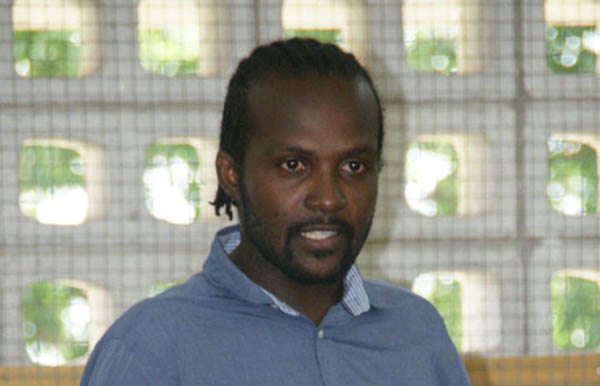Esso Exploration and Production Guyana Ltd. (Esso) has been added as a party to the challenge brought by University of Guyana scientist Troy Thomas and conservationist Quadad De Freitas, who have filed an action against the State in which they argue that the greenhouse gases emitted from petroleum operations in the Liza Phase 1 are hazardous not only to the environment, but the health and wellbeing of citizens and must be stopped.
Esso is a subsidiary of US oil company ExxonMobil, the operator of the Stabroek Block.
Thomas and De Freitas are contending that Esso has started to produce oil in the Liza Phase 1 Development Project, approximately 120 miles offshore in Guyana’s exclusive economic zone and is emitting greenhouse gases that would not otherwise have been emitted.
Given what it had described as its substantial interest in the subject of the proceedings and its outcome, Esso had filed an application to be added to the litigation as a party in order to oppose the making of the orders requested by the Applicants.
Contending, however, that Esso’s presence before the Court was unnecessary, the Applicants through their attorneys had opposed Esso’s application.
Senior Counsel Edward Luckhoo and Andrew Pollard, for Esso had previously noted that the Applicants did concede that if Esso were to participate in limited scope, the Court would have the discretion to so allow.
Justice Franklyn Holder heard arguments in the matter and yesterday ruled that Esso ought properly to be added as it had a material interest in the proceeding and its outcome.
With that preliminary issue having been settled, the substantive case is now set to come up for case management in June of next year.
The State is being represented by a battery of lawyers led by Attorney-General Anil Nandlall, SC; while the Applicants are being represented by attorneys Ronald Burch-Smith and Melinda Janki.
Thomas—a scientist and Dean of the Faculty of Natural Sciences and De Freitas—conservationist and ecotourism operator are seeking a number of declarations from the court, among which they say is the State’s duty to refrain from authorising activities that would harm the environment and citizens.
Thomas and De Freitas are seeking a declaration that the State’s duties under Article 149J (1) of the Constitution require it to refrain from authorising activities that would contribute significantly to climate change, ocean acidification and/or sea level rise.
More specifically, however, they want the court to declare that the direct emission of 22,030,000 tons, 34,545,000 tons and 35,720,000 tons of greenhouse gases from petroleum operations in the Liza Phase 1 and the pending Liza Phase 2 and Payara projects respectively would make the environment more harmful to the health and wellbeing of citizens and future generations.
To allow activities resulting in such impacts, the applicants argue, amounts to a constitutional violation.
They contend, too, that the increase in emissions from the on-going Liza Phase 1 project, and the proposed Liza Phase 2 and Payara projects is contrary to the State’s Nationally Determined Contribution of 2015, its commitments under the Paris Climate Agreement, and the State’s duty to take reasonable measures under Article 149J (2), thus constituting a breach.
“This greenhouse gas pollution is endangering and harming human lives, human rights and the ecosystems on which we depend both within and outside of Guyana,” the scientist has said; adding that there is overwhelming scientific evidence of the devastating impact of greenhouse gas emissions.






